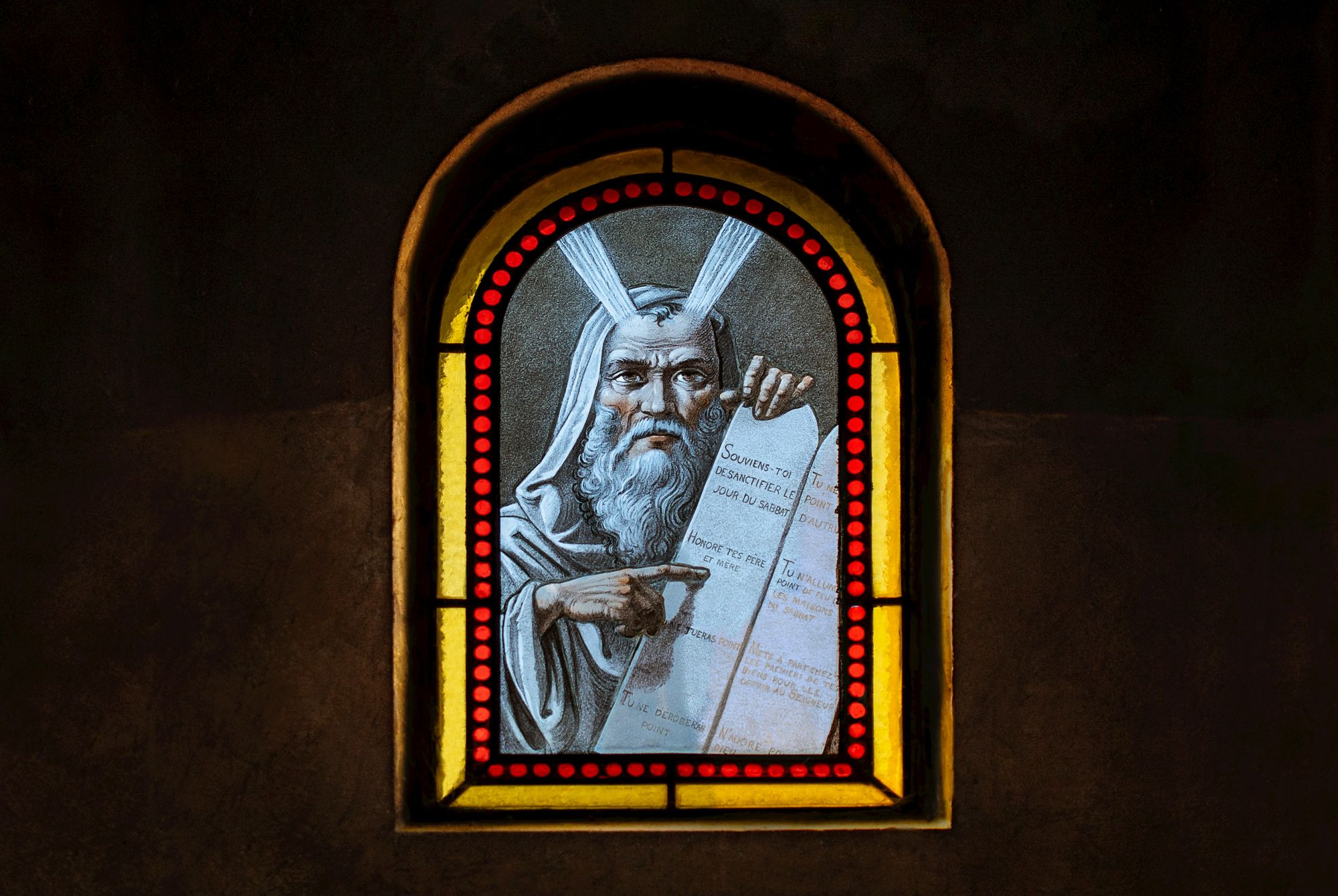Third Sunday of Lent - Fr. Joe Austin
March, 3 2024 - 8:30 AM
Audio Recording
Today’s readings are about the law of God and the invitation for us to instill this law in our minds and in our hearts.
In the first reading we hear the famous 10 Commandments, that come to us in their order of about 14, depending on who you ask. 10 of course is a much nicer number — it’s a lot easier to keep track of. The symbolism involved is also helpful as a memory device. 3 of the 10 relate to the Trinity, meaning, they relate to God. The other 7 relate to our brothers and sisters, our fellow human beings. This listing of 10 commandments was made popular by Saint Augustine, and has stood the test of time as a useful ordering of the commandments. Of course it’s not so necessary that we know the exact number of the commandments described in the Bible, but rather their content. For the Jewish people, this listing of 14 commandments was only the beginning of the many laws they would extract from the entirety of the Old Testament. In fact, they would end up finding an additional 599 laws to add to the 14, bringing the total number of laws to 613. Thank goodness Augustine didn’t try to teach us to instill within ourselves the 613 commandments. The 10 commandments, with their ordering of 3 commands in relation to God and 7 in relation to humanity, are much easier to assimilate and put into practice. Besides, some of those 613 laws are pretty difficult. Number 194: You shall not eat the thigh muscle — no more chicken thighs. Number 196: You shall not cook milk and meat together — no more bolognese sauce. (I may or may not be fasting during Lent, so I had to stop myself from listing every food-related law) Here’s a hard one, number 568: You shall not curse the head of state. How many Americans might be guilty of this one over the past 8 years? Then there’s number 610: not to panic and retreat during battle — to fulfill this law, men will have to choose their battles with their wives more carefully. It’s a lot of laws, and they concern a lot more than just food and conflict, as relatable as conflict and food are for someone who’s fasting.
Moving along, the responsorial says that, “the decree of the Lord is trustworthy, giving wisdom to the simple.” Be careful not to think of this through a lens of egotism, where the phrase “giving wisdom to the simple” identifies “the simple” with “the dumb.” Rather, this is speaking to the ease of communicability that God’s law has for the human heart. For someone who doesn’t live according to God’s law, the reception of it can be difficult, but once it takes root in the human heart, the human person is able to recognize the outgrowth of freedom that has begun to flower thanks to the healthy cultivation brought about by the law of God that provides the necessary soil for real freedom to come to term in the human heart. We naturally tend to think in the American way of considering freedom, where freedom is the ability to do whatever one wants. But God shows a different way to think of freedom. Rather than true freedom being about the ability to do whatever one wants, God’s law instills a reality of freedom that increases alongside the ease with which one can pursue and proliferate all that is true and good and beautiful. The more easily one can pursue and communicate the transcendentals of truth, goodness, and beauty, the freer someone is — this is the concept of freedom put on offer by God that in some ways stands in contrast to the American concept of freedom, but that really absorbs the American concept of freedom’s best parts and then moves beyond it by directing the human heart to the natural desires that the human person has. The human person naturally loves God’s law; it takes effort to hate it. Yet, American freedom does also exist (again, God’s offer of freedom doesn’t force the American idea of freedom to disappear); we are given the choice, the fundamental option to decide for ourselves how we relate to the One Thing Necessary — we can choose to love God’s law, or we can choose to hate it — which itself is a decision to choose to love God or hate Him. God gives us this choice, because there is no true conversion by the sword — there is no conversion by logic. Otherwise, how would we hold to the reality of the Evil One who tempts Christ in the desert? The seraphic angel is smarter than any of us, and he isn’t bound by discursive thinking as we human beings are. He knows things immediately. And yet he made his decision regarding the fundamental option regarding the relationship to God. God doesn’t force us to love Him. He simply shows us what’s on offer, and invites us to participate in that offering, the offering of life in Christ, an offering which He fully opens up when He takes His place on the Cross.
